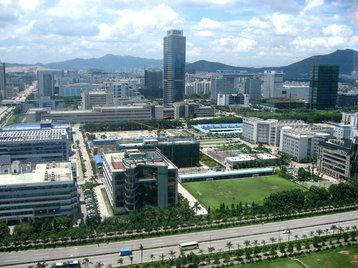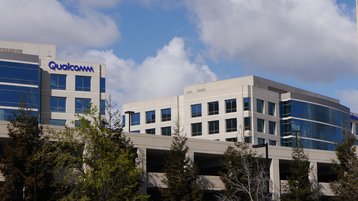Chinese telecoms company ZTE has been left reeling after the United States government banned American companies from doing business with it for seven years.
The US Department of Commerce said that the manufacturer had violated a 2017 settlement agreement made after it pled guilty to selling US technology to Iran and North Korea. Soon after the ban was announced, the UK government wrote to domestic telecoms providers claiming ZTE’s equipment and services could pose a national security risk.
An estimated 15-25 percent of components in ZTE’s equipment is believed to originate from US companies. In response to the ban, the primarily-state owned business suspended shares in Hong Kong and Shenzhen.
See you in 2025
Back in March 2016, the Department of Commerce restricted the sale of US technology to ZTE after claiming it sold equipment containing US tech to Iran and North Korea between January 2010 and April 2016.
In March 2017, ZTE pleaded guilty to many of the charges, and the ban was lifted - with the company paying $1.19 billion in fines. As part of the deal, ZTE agreed to abide by the rules of the settlement for seven years, and promised to take disciplinary actions against 39 employees identified as being involved in the illegal sales - with a penalty of a seven year US tech ban enforced if the rules weren’t followed.
Now, the Department of Commerce claims ZTE failed to penalize the employees, and went as far as to pay some of them bonuses. On two occasions, the company told the US government it had reprimanded the employees, Richard R. Majauskas, acting assistant secretary of commerce for export enforcement, said.
“In sum, through those two letters, ZTE informed the U.S. Government that the company had taken or would take action against 39 employees and officials that ZTE identified as having a role in the violations that led to the criminal plea agreement and the settlement agreements with BIS and the U.S. Department of the Treasury’s Office of Foreign Assets Control,” an order signed by Majauskas said.
“In fact, and as ZTE now admits, the letters of reprimand described in the November 30, 2016 letter were never issued until approximately a month after BIS’s February 2, 2018 request for information, and all but one of the pertinent individuals identified in the November 30, 2016 or July 20, 2017 letters received his or her 2016 bonus.
“These false statements were not corrected by ZTE even in part until March 2018, more than 15 months from ZTE’s November 30, 2016 letter, approximately a year from the Settlement Agreement (which ZTE executed on March 2, 2017) and the March 23, 2017 Order, and nearly eight months from the July 20, 2017 letter. During a conference call on March 6, 2018, ZTE indicated, via outside counsel, that it had made false statements in the November 30, 2016 and the July 20, 2017 letters.”
ZTE responded to the ban with a statement: “ZTE is aware of the denial order activated by the United States Department of Commerce,” the company said. “At present, the company is assessing the full range of potential implications that this event has on the company and is communicating with relevant parties proactively in order to respond accordingly.”
The order will impact not just ZTE, but all of its US suppliers, with chipmaker Qualcomm, optical components company Oclaro and networking semiconductor manufacturer Acacia Communications among those most impacted.
There’s more
Compounding ZTE’s terrible, horrible, no good, very bad week, is what’s happening in Britain.
The National Cyber Security Centre (NCSC) has written to UK telecoms providers warning them that the use of ZTE’s equipment and services could pose a long term negative effect on the security of the UK.
Dr Ian Levy, the NCSC’s technical director, said: “It is entirely appropriate and part of NCSC’s duty to highlight potential risks to the UK’s national security and provide advice based on our technical expertise. NCSC assess that the national security risks arising from the use of ZTE equipment or services within the context of the existing UK telecommunications infrastructure cannot be mitigated.”
In a letter seen by the Financial TImes, Levy wrote: “Mitigating the risk of external interference with equipment supplied by a particular vendor depends in significant part on telecommunications equipment being present from other vendors who are not subject to the same risk of external interference.
“The UK telecommunications network already contains a significant amount of equipment supplied by Huawei, also a Chinese equipment manufacturer. Adding in new equipment and services from another Chinese supplier would render our existing mitigations ineffective.”


